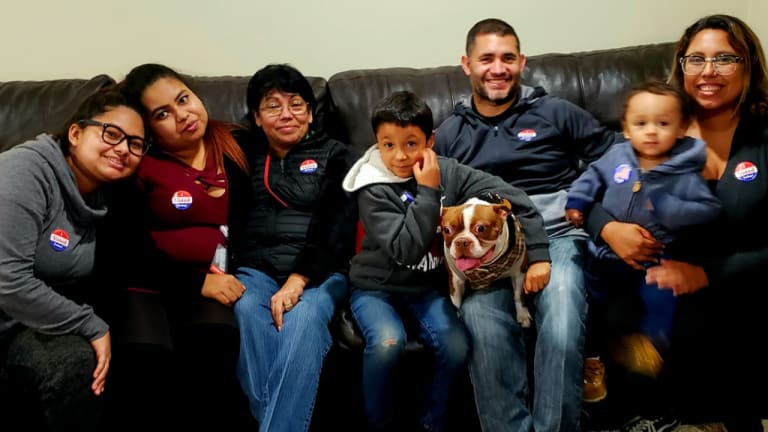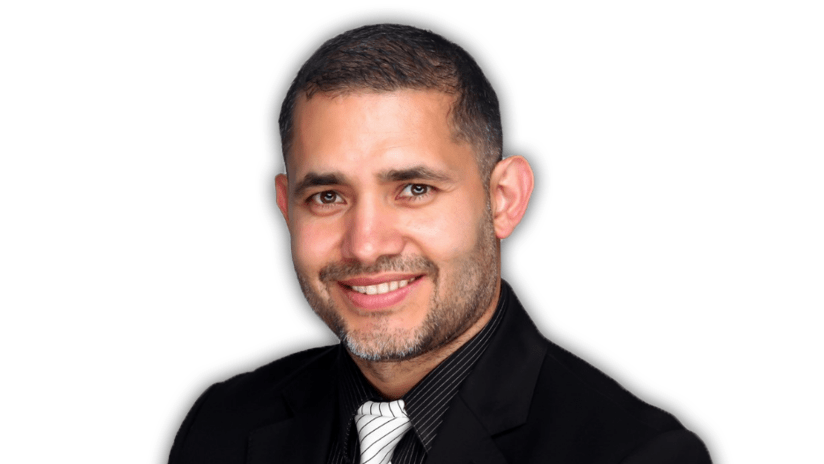Cinco de Mayo is a time to reflect on Mexico’s influence on the game we love. Without our southern neighbor having a rich history and thriving soccer scene, it is impossible to imagine what the game would look like in the United States.
What you are reading isn’t a typical Cinco de Mayo celebration story, though. This is an unfiltered focus on the stories of someone who started life in the U.S. as an undocumented immigrant and grew to a prominent position on the ultra-competitive business side of soccer.
Many Mexican families leave their homeland in hopes that the U.S. will provide them with a better life, even when it means taking on the pressures of living in a heightened state of anxiety and fear.
The beauty of what a better life means varies from person to person, as does the lottery-like nature of achieving citizenship. They will go where the opportunities are, and they know that the statistics of being the “American dream” are not in their favor.
MLS NEXT Pro Director of Digital Content Joe Rodriguez is an example of having to take the long road to make his way in life - and his stories add up to an odds-defying tale of what determination to not be another statistic looks like.
In a recent interview, he shared stories from the journey that saw him grow from a first-arrival Mexican-American to having one of the most impressively decorated professional and academic resumes of anybody you’ll see in the sports industry.
Joe’s life began in Guadalajara, Mexico where he grew up going to Chivas games with his grandfather, and had dreams of being a player, or jugador, one day.
When he was eight years old, life as he knew it changed forever when he learned that his mother, Maricruz, was heading to the United States and he was ultimately going to make that same journey in an undetermined amount of time.
Six months later, after a period of confusion and sadness from missing her, he was playing in the streets with his friends when his aunt interrupted with the news that he was leaving the only home he knew and would be reunited with his mother later that week.
“It was a lot more spontaneous than planned,” Rodriguez told MLSNEXTPro.com. “It was just ‘You guys are leaving right now,’ and so we hopped on a bus that took us all the way to Tijuana, and then a few days later we were smuggled in and met up with my mom again.”
It is easy to understand how a child’s imagination would be full of wonder and excitement about their new home and the people they’ll meet. Joe described his eight-year-old self’s perception of the United States as having streets paved with gold and an abundance of trash cans because nobody littered.
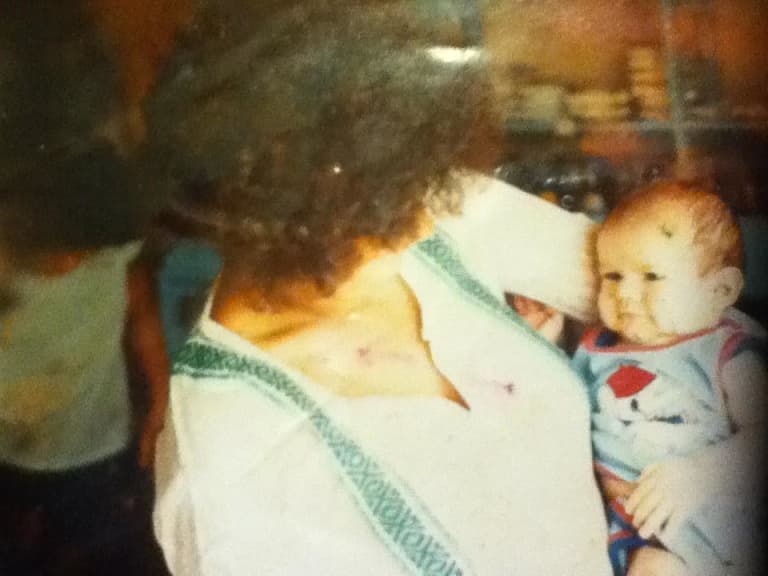
Safe to say, he was in for a surprise. His next chapter took place in Los Angeles, California. While the City of Angels boasts plenty of glitz and glamor - the reality is California was a political hotbed when he arrived, and undocumented immigrants were the target of a bitterly divisive era in the state.
In a perfect world, these aren't issues a child should be worrying about. But it wasn’t a perfect world for Joe and his family. In 1994, when Joe was 13, the state voted to pass Proposition 187, which effectively meant that undocumented people would not be able to have access to necessities such as health care and education.
At this time, it was a main topic in the media and it resulted in protests on both sides of the issue raging on for several months, and it brought out the bigoted nature of many who were staunchly anti-immigration.
The bill was eventually deemed unconstitutional and repealed, but observing the unrest was something that served as a wake-up call for Joe and his family.
The safe haven and opportunities they dreamed of having were at odds with a voting population that did not want families like his to succeed.
But the adversity was something Joe was well aware of before the state motioned to write it into law. Getting started, Joe and every young person like him are only offered a series of sink-or-swim tests that can become life-altering. If you sink, your life could be changed forever for the worst. If you swim, it’s only enough to meet the next hurdle.
Dealing with the constant pressures from gangs, deportation raids, and not having a name your country recognizes makes for plenty of stress on their own. In the case of Joe’s family, being poor on top of it, meant encountering landlords who will evict a single mother and her children at a moment’s notice.
“I remember clearly that my brothers both had chicken pox, so they were sick, and my mom had come home from work at like two in the morning. And they literally woke us up at six in the morning and kicked us all out. We didn't take anything, and we went to a donut shop.”
The dejection of that and several other moments limited Joe’s ability to see the best in people.
“We were waiting and I remember this lady walking in and looking at us, and she went to the counter and when she was finished, she came towards us and gave us a dozen donuts in a box and I remember my mom started to cry.”
Joe wasn’t able to see a stranger trying to help. He only saw someone who made his mother cry at one of the most desperate points in her life.
“It was a very demeaning and very humiliating moment …but at that time as a little boy, I couldn't grasp that woman's intention was not to feel pity for us,”
Joe’s mother was busy working multiple jobs and only had so much time to impart life lessons. His father was not in the picture in any capacity. He’s the oldest of his siblings, which meant he was thrust into being a leader.
This is one of several potential pitfalls of having to grow up too quickly. There is no alternative to skipping steps in maturation for Joe or any kid like him. It can make processing complex emotions a lifelong challenge.
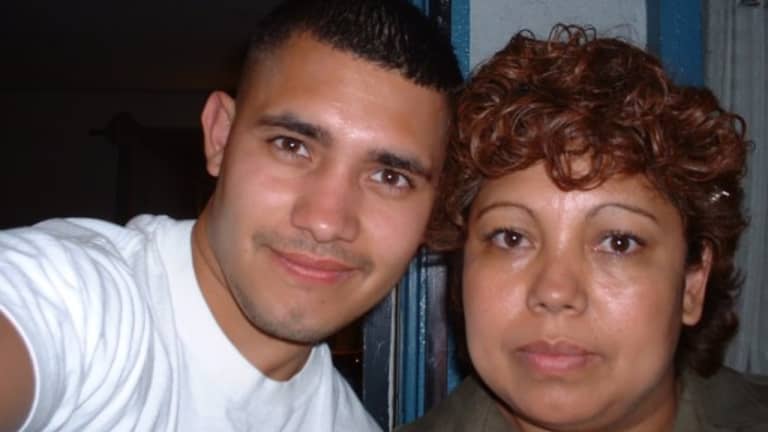
School is another element entirely. If you have a rough home life, it can ideally be a place to leave your problems at the door. It’s where inspiration can happen, and taking it seriously can be your ticket to something better. But socially, it is run by children, the most unfiltered members of society, who can be quick to make one feel like an outcast in what’s supposed to be a safe space.
“To be perfectly frank, I clearly remember the first person who called me an illegal alien. I was in sixth grade, and that person was just upset about a joke or something, and I clearly remember her questioning if I was an illegal alien in a very condescending tone.
“And it's funny because I had no idea what that meant. I had never heard the term illegal alien in my life. And my reaction to her question was ‘Yes, I come from Mars,’ that was the only thing that I was able to answer because I had no idea what she was talking about.”
While that specific instance ended in something Joe can laugh about today - these interactions didn't always end so innocuously. Nor were they confined to childhood. Sometimes they hit hard. Sometimes they were overtly racist. Sometimes they were personal.
You probably shouldn’t need a soccer website to tell you that someone’s documentation status or education level is not a definitive reflection of their intelligence or potential. But people, even those you allow in your inner circle, can weaponize it.
After experiencing enough of his life in Los Angeles, Joe suffered through a period of uncertainty and hopelessness about being unable to attend college, which led him to drop out of high school and move to New York to focus on work.
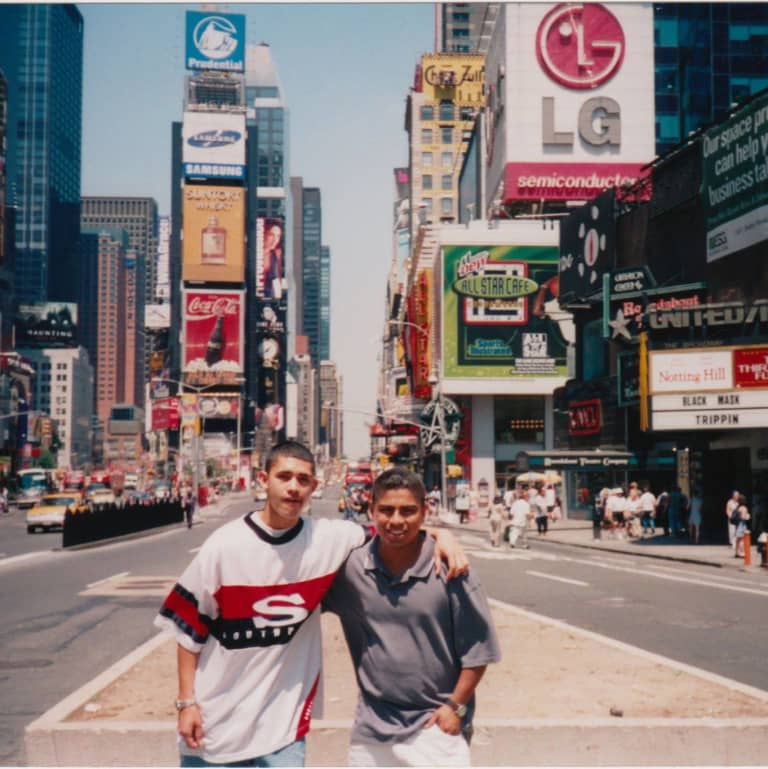
Still undocumented and unable to escape the pressures life was going to keep serving him, a cheap shot from one of his friends at the time stands out as one of the cutting memories Joe turned into inspiration.
“'I've always been a person who loves to learn and be in tune with a lot of different things. Every time there was a conversation, I always had an answer. I always knew what the topic was about and things of that nature, and I made one of my friends at the time very angry.
“He decided to call me out and he told me these words: ‘I know you're smarter than me, and you're probably smarter than anybody else here. But at least I have a high school diploma.’ And he just destroyed my ego and my heart and my psyche.
“I thought about it and I thought about this and I was like … I'm a schmuck because I have no education. And I have nothing that could show otherwise. So the next morning, I decided to enroll back in high school, and that is pretty much, I think, the changing moment in my life because I've never looked back ever since.”
Joe often cites making his mother proud as the kerosene for his fire, which is a sentiment that many of us share, but Maricruz took risks that require uncommon bravery that he learned to embody.
With a different twist of fate at any point in their journey, life would be much different for her and her children today, and with no safety net to be had in their specific circumstances, Joe had to start walking down a lonely road to fulfill the intentions his mother had when she committed to restarting in the United States.
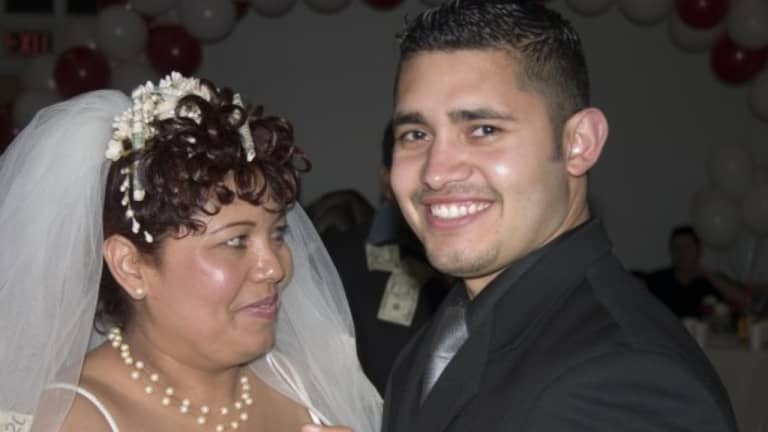
Humility is never a warm dish. For the average American, the path to achieving a high school education is fairly straightforward, and that is a privilege routinely seen as a baseline accomplishment. In many circles, it’s not worth boasting about. In those same circles, people who drop out are commonly outcasted and never return.
At the age of 21, Joe returned to school to complete his high school education. By this time, several things had changed, and Joe had the ability to attend college, which unlocked a new sense of power that opened up the doors to invite positive influences.
“There was no social life. Most people just did their job and left. My most fond memory of adult high school is that my teacher, my professor, Janet Buzan, was one of the people that believed in me and inspired me to believe in myself. She knew that I was undocumented. She knew the situation. But she always encouraged me and always pushed me,”
He stayed on the grind and learned skills and continued his education at Santa Ana Community College (California), all while working at least two jobs at a time.
Those years became a second act in life that offered bundles of stories on their own, but the power of having good teachers and Joe’s refreshed outlook is where the magic began.
Obviously, the childhood dreams of being a player were over by now, but the love for the sport never dies.
Joe kicked around the idea of being a broadcaster but could not deny his natural knack for leadership that his unique upbringing prepared him for once he was shown the path by another teacher who inspired him.
“I wanted to take general education classes but also take TV and communication classes and it just so happened that my future mentor, Terry Bayles, who was the professor and chair of the TV/Communications program at Santa Ana College told me that they were going to be having open auditions for the local TV news show they produced on campus and to check it out.
“I did. So, I think that's probably a defining moment in my life when it comes to my present skills and everything else that I know how to do. Because I literally grabbed the bull by the horns and instead of doing general education, I ended up taking five TV classes and a math class and most of them were with Terry, who was an institution that helped hundreds of students get into jobs between TV and print.”
The rest is history, but it’s still being written.
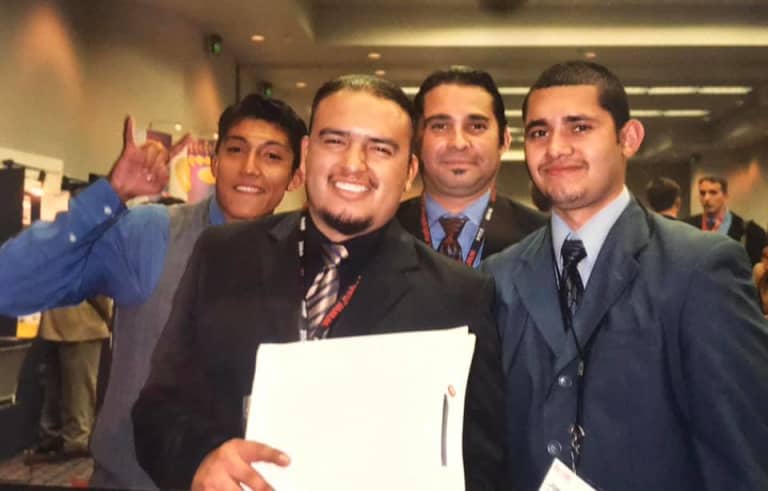
Life is still a balancing act for Joe these days. In addition to serving as a Director at MLS NEXT Pro, he’s coming to the end of his graduate school education and will receive his Master’s degree in Business Administration from UCLA in June.
Life at MLS NEXT Pro is a return to focusing on the game Joe loves the most, and it follows stints at the largest sports broadcasting companies in the United States and an entrepreneurial project covering soccer specifically.
But beyond the fun nature of being able to work in soccer - the MLS NEXT Pro offices' culture was a big selling point in his return to the corporate side of the sport.
“It's very good to be able to look at the mission statement of the company then also see that it's been executed and see like that the leader of it stands behind it and also acts upon it.”
The pillars of MLS NEXT Pro are made of Accelerating the future of soccer in North America, Empowering local communities, Establishing a platform for innovation and diversity, and Completing the pro-player pathway.
On an individual basis, the opportunities can be intertwined between what the league does internally with its people, and externally with clubs, players, and staff members.
“I'm really grateful to be able to see the things that they're doing, but also it’s not just a pathway for players, but also individuals. Because I think that a lot of us probably think that in the future we want to be also like future leaders, right? And whether we lead a club or a major project, I think that Charles (Altchek, MLS NEXT Pro President) definitely is aligned with that and always champions it and is very tuned in with not just being a developmental league for players,”
In addition to balancing professional and academic duties, Joe invests time to make sure he can be a positive influence and help make a blueprint for those who need it.
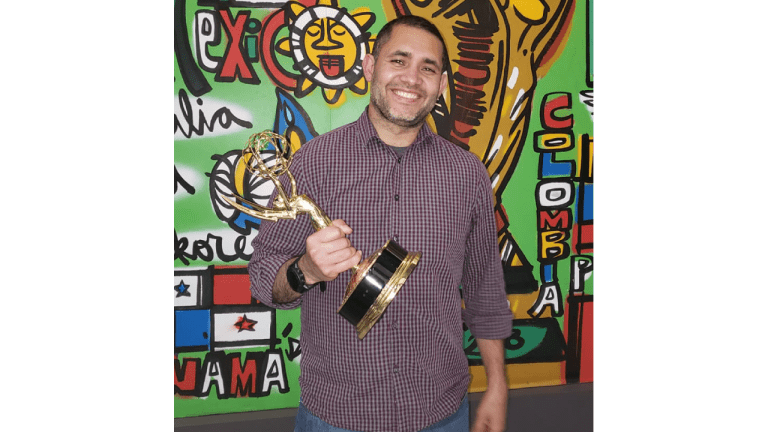
He is a co-chair of the Sports Task Force in the National Association of Hispanic Journalists, which has a focus area of increasing Hispanic representation in sports media. This requires some additional work, but it keeps Joe in tune with the state of his community in the industry.
“I think it always goes back to being a young student, or being a young person and having the feeling of helplessness that a lot of us students probably have.
“So I think that one of the things that I will always do is make myself available for those who want to help themselves, for those who seek advice and just want to want to become better, and help them, at least to the best of my abilities,”
Joe is living proof that breaking the cycle is realistic, but it does take patience and even some luck.
“I am 100% lucky. But even more than lucky, blessed. It's a combination of both because I'm very grateful to even be in this country and I always reflect on this when thinking about some of my relatives and how challenging and difficult it has been for them in Mexico, and how they don't have the opportunities to excel that are gained by simply being in this country.
“It took a long time to get here. But at least those opportunities eventually came.”
In 2022, Pew Research Center published reports that show Latino enrollment in American Universities increased from 470,000 to 3.7 million between 1980 and 2020.
While this trend is going in a more favorable direction, millions of Mexican-Americans are plagued by the common disadvantages that come with their family’s documentation, and in turn, socioeconomic status. Joe shared a sports analogy he says he tells sports fans to describe what it was like growing up; "You know the saying 'some people start the race in life on third base while others have to do it from home plate', well, many of us in our community start that race outside the stadium."
“I sometimes wonder what is it that keeps us going. Why do we want to keep overcoming barriers? I always think about this … I was meant to be another statistic, and why I made it out, I don’t know, but I know everything I explained is only part of the reasons why.”
